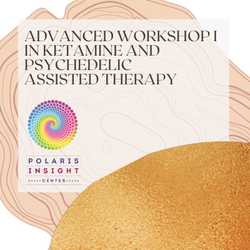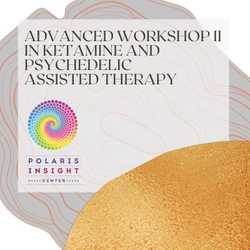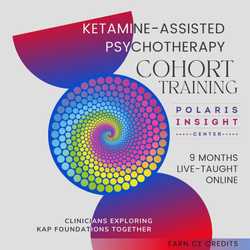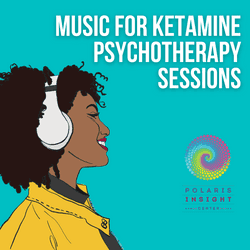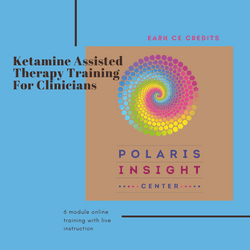Advanced Workshop III in Ketamine- and Psychedelic-Assisted Therapies
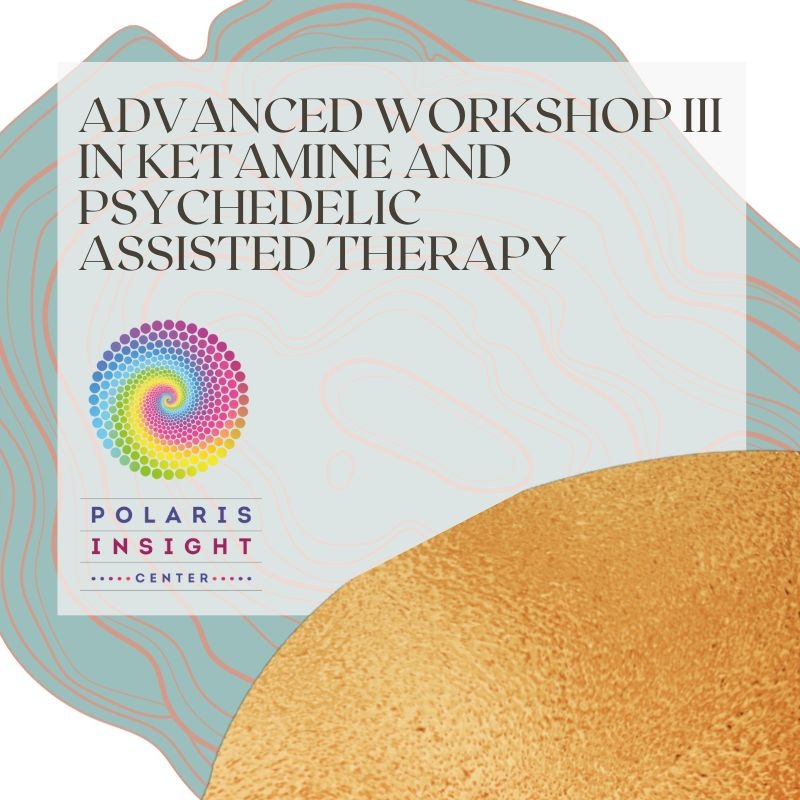
Advanced Workshop III in Ketamine- and Psychedelic-Assisted Therapies
$0.00
Training Description
Join Polaris Insight Center for an advanced workshop where a variety of seasoned KAP psychotherapists with a diverse array of backgrounds and approaches share clinical experiences, protocol innovations, and theoretical understandings.
We discuss the strategic use of low-dose/psycholytic sessions; innovations in set/setting and preparatory processes; the use of a client’s “language of self” as a vehicle for maximizing and improving the clinical process, outcome, and durability of positive effects of KAP; expectation management and screening; and the range of psychological experiences clients may have in KAP.
We offer a follow-up presentation (from Module 7) on therapeutic work with symbols, images, and imagination processes in a relational context as integral elements of effective treatment, and we explore potential pitfalls of treatment, including psychological dependence and wishful projections within altered states of consciousness. Throughout the workshop, we use case examples to illustrate important points and perspectives.
Teachings are appropriate for healthcare professionals as well as the general public. Healthcare professionals will be able to incorporate the tools and practices offered in this program in ways beneficial to clients or patients.
Polaris offers modules 1 to 5 ketamine therapy training series. Module 8 can be taken without completing the prior modules.
All modules are taught live online through Zoom. Earn 8 hours of continuing education (CE).
Training Curriculum
Module 8 - Advanced Workshop III on Ketamine - and Psychedelic-Assisted Psychotherapies Live/Online
In this advanced module, a variety of seasoned psychotherapists with a diverse array of backgrounds and approaches share their clinical experiences, protocol innovations and theoretical understandings. We discuss a variety of themes, including the strategic use of low-dose/psycholytic sessions; innovations in set/setting and preparatory processes; an introduction to the use of a client’s “language of self” as a vehicle for maximizing and improving clinical process; outcomes and durability of positive effects of KAP; expectation management and screening; the range of psychological experiences clients may have in KAP; Zen Buddhist perspectives on non-ordinary and mystical states of consciousness and the integration of peak experiences, and exploring potential pitfalls of treatment including psychological dependence and wishful projections within altered states of consciousness. We use case examples throughout the workshop to illustrate important points and perspectives.
Teachings are appropriate for healthcare professionals as well as the general public. Healthcare professionals will be able to incorporate the tools and practices offered in this program in ways beneficial to clients or patients.
Learning Objectives for Module 8
After completing this module, participants will be able to:
- List 2 ways to determine "the language of self" in their clients.
- Apply "the language of self" toward designing the setting for a therapeutic medicine experience.
- Explain the rationale for and the step-wise process by which lower dose KAP can safely and gently support the exploration of various self-states and facilitate healing from trauma.
- Explain the critical importance of relational safety and connection as individuals integrate painful and/or pleasurable content emerging from their journeys as shaping their sense of self.
- Identify appropriate and optimal patients for treatment, and how to structure treatment pathways to support individual needs.
- Describe key concepts and practices of Zen Buddhism as they pertain to psychedelic integration.
Meet your Training Instructors:




Extra Info
All modules are taught live online through Zoom.
CE Credits:
Earn 8 hours of continuing education (CE) - select CE option.
Date:
April 24, 2026
Time:
9 am - 5 pm Pacific Time.
Target Audience:
This course is designed for mental health professionals – MDs, DOs, NDs, NPs, RNs, PsyDs, PhDs, LMFTs, LCSWs, LPCs, LEPs. Open to the public.
Accommodations:
To request accommodations for special needs, please email the program administrator at training@polarisinsight.com.
Cancellation Policy:
Participants need to cancel up to 2 weeks in advance to receive a 100% refund (minus a $25 admin fee and payment processing fee). If cancelled after the 2-weeks-in-advance period they can use the credit for a future training or receive 50% refund (minus a $25 admin fee and payment processing fee).
Certificate Information
Interested in the different certificate options for our courses? Read on to learn more:
Once you complete the course you will receive a Polaris Insight Center Certificate of Completion. Choose this option if you are not a licensed health provider and do not need continuing education credit for your professional degree.
Once you complete the course you will receive a Polaris Insight Center CE Certificate. Choose this option if you are a licensed health provider who would like continuing education credit for your professional degree.
- Be sure to select the CE credit option when purchasing the course.
- Upon completion of the course, you will receive a Certificate of Attendance for your credits.
- CE credits for psychologists are provided by Polaris Insight Center, an APA-approved CE sponsor.
- Polaris Insight Center is approved by the American Psychological Association to sponsor continuing education for psychologists. Polaris Insight Center maintains responsibility for this program and its content.
- The California Board of Behavioral Sciences accepts CE credits for LCSW, LPCC, LEP, and LMFT license renewal for programs offered by approved sponsors of CE by the American Psychological Association.
- LCSW, LPCC, LEP, and LMFTs, and other mental health professionals from states other than California need to check with their state licensing board as to whether or not they accept programs offered by approved sponsors of CE by the American Psychological Association.
- For questions about receiving your Certificate of Attendance, to request special accommodations, or report a grievance contact Psychedelic Support info@psychedelic.support.
